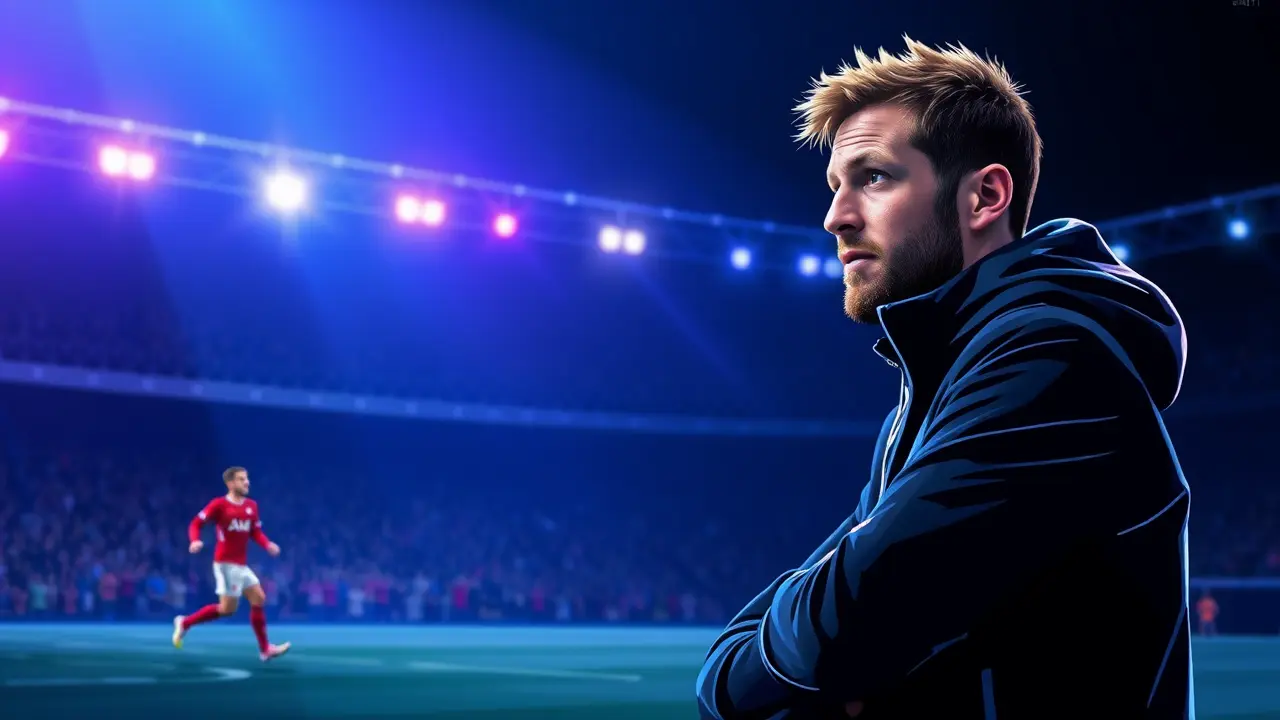Tuchel on Kane's 13th place in Ballon d'Or ranking
When the question about Harry Kane's puzzling 13th-place finish in the Ballon d'Or ranking landed, it was like asking a philosopher to comment on a popularity contest he considers fundamentally flawed. Thomas Tuchel, the astute tactician currently steering the English national team, responded with the kind of dismissive, almost weary sigh you'd expect from a man whose entire professional existence is built on the sacred geometry of team dynamics.'Listen, I'm not even aware of when the Ballon d'Or takes place, or who finished where,' he began, a statement that speaks volumes about his priorities. 'I am probably the last person who follows this.I've never been a big fan of individual awards in team sports. ' This isn't just a casual opinion; it's a core tenet of his coaching philosophy, a belief system where the collective organism of a team, its synchronized movements and shared sacrifices, is the only true measure of success.To focus on a single player, no matter how brilliant, is to misunderstand the very essence of football. And yet, even from this principled high ground, Tuchel couldn't help but acknowledge the sheer absurdity of Kane's positioning.'Harry is a genuine team player, he stands out through his actions,' he conceded, the professional respect for his striker cutting through his ideological stance. 'He definitely should have been placed higher than thirteenth.' This single sentence is a damning indictment of the award's current calculus. Let's unpack this properly, because Kane's 13th-place ranking isn't just a minor oversight; it's a statistical and performance-based anomaly that demands a deeper investigation into what the Ballon d'Or has become.Last season, Harry Kane wasn't just good; he was historically prolific. In his debut campaign with Bayern Munich, he shattered the Bundesliga's single-season scoring record for a debutant, netting an astonishing number of goals and providing a plethora of assists, often from deep-lying creative positions that showcased his evolution beyond a mere penalty-box predator.His goal contributions per minute ratio placed him in the rarefied air of legends like Gerd Müller and Robert Lewandowski in their prime. Analytically, his expected goals (xG) and expected assists (xA) metrics were off the charts, demonstrating that his output wasn't a fluke but a consistent, high-volume threat that defined Bayern's entire offensive structure.He carried a transitional and sometimes dysfunctional Bayern side on his back, dragging them through Champions League group stages and keeping them in a title race they had no business being in for as long as they were. To place such a player 13th is to fundamentally devalue the currency of goal-scoring and creative influence.It begs the question: what exactly are the voters prioritizing? Is it the glamour of winning a specific trophy, even if an individual's role in that triumph was peripheral? The winner, Paris Saint-Germain's winger, undoubtedly had a stellar season, but his raw output in terms of goals and assists pales in comparison to Kane's monumental figures. This discrepancy highlights a long-standing tension in the award's criteria—is it for the 'best' individual performer over the calendar year, or is it a de facto team award given to the most recognizable player on the most successful team? Historically, the Ballon d'Or has oscillated between these two poles.There was an era where the sheer, undeniable force of individual genius could win it, as seen with Leo Messi's wins based on seasons of supernatural performance, even without a Champions League trophy. In recent years, however, it has increasingly become a coronation for a key player from a Champions League or major international tournament winner.This shift risks turning the award into a team medal with extra steps, diminishing the achievements of phenomenal players on teams that fell just short. Imagine, for a moment, if we applied this logic to eras past.Would Gerd Müller, the ultimate goal machine, have consistently been ranked outside the top ten because his Bayern Munich side occasionally lost in Europe? It's a sobering thought. Kane's situation is reminiscent of other greats who were perennially undervalued by this process—players like Thierry Henry or Robert Lewandowski in his prime, whose sustained, world-class excellence was sometimes overshadowed by a single cup final.The conversation around Kane is also uniquely tied to his career narrative: the loyal servant of Tottenham Hotspur who finally sought a new challenge to claim the team honors his talent deserved. His move to Bayern was supposed to be the final piece of the puzzle, placing him on a stage where his individual brilliance would be impossible to ignore, especially in the context of a Ballon d'Or race.That he could produce one of the finest individual seasons of his career, break records, and still be placed behind a dozen other players suggests that the narrative and the team trophy cabinet still hold disproportionate weight. From a tactical perspective, Kane's game has evolved to a point where he is a complete modern forward.He drops deep to orcheplay, pinging cross-field passes with the vision of a number ten, he holds up play, and his finishing is both powerful and precise. He is a system in and of himself.To rank him 13th is to ignore this multifaceted impact and focus on a narrower, perhaps more superficial, set of criteria. In the end, Tuchel's initial dismissal of the entire process might be the most rational response.The Ballon d'Or, for all its glitz and glamour, is an imperfect metric in an imperfect team sport. But his subsequent defense of Kane reveals a deeper truth: when a system produces an outcome so blatantly disconnected from on-pitch reality, it loses credibility.Harry Kane's 2023-24 season was a masterpiece of individual footballing excellence. The Ballon d'Or ranking, in placing him 13th, was not.
It’s quiet here...Start the conversation by leaving the first comment.
© 2025 Outpoll Service LTD. All rights reserved.
